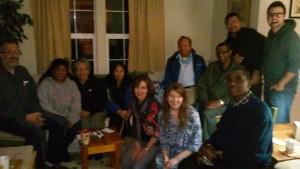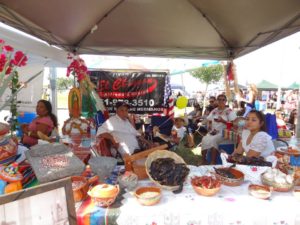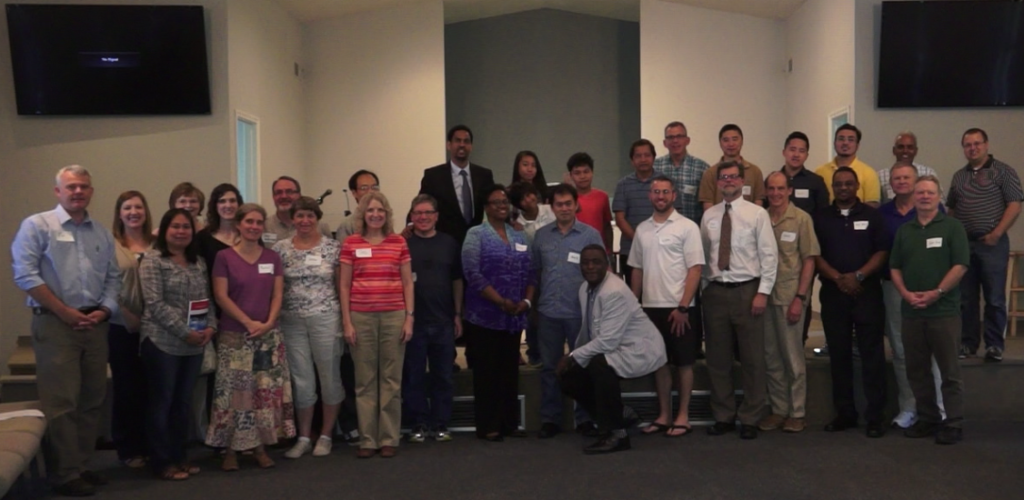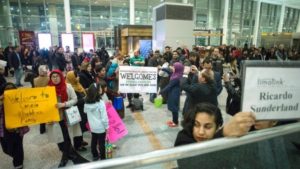Catch up on the back story…
Something very significant had recently happened. The Holy Spirit was changing the rules of the game, and the lesson came most strongly to the person who, if he changed, everyone could change. He was the sanctified godfather of the early church. His was the vote that broke any tie, or the veto that canned any plan. He was Peter, the pillar of the Jewish church.
But over the course of 24 hours, this devout Jew, comfortable in his own skin, his own culture and beliefs, the top leader of a new Jewish sect, uncontaminated by fellowship with any non-Jews, went through a metamorphosis from God, and was transformed. He emerged as  a leader persuading his fellow Jewish elders that God had cleansed all food, and that anyone who believed in Christ could be saved, regardless of culture, color, or class.
a leader persuading his fellow Jewish elders that God had cleansed all food, and that anyone who believed in Christ could be saved, regardless of culture, color, or class.
What had happened? What cracked this cultural Rock of Gibraltar? How did the Holy Spirit lead Peter, a bull-headed leader through such a revolutionary process? Whatever it was, it gave the whole church the freedom to cross boundaries; it emboldened certain men in Antioch to talk to Hellenists.
And whatever it was, it is the very thing we need today if we are to get off Pause and push the Play button. It is what we need to line up our default preferences for our own kind and culture, and align with God’s call to reach out and include those who are different.
Peter was staying with a friend in the coastal town of Joppa. About three in the afternoon Peter goes up on the roof to pray, and of all things he falls into a trance.
Heaven opens, and a huge sheet is let down, filled with a smorgasbord of foods that good Jews were forbidden by the O.T. to eat. Then a voice from heaven, “Rise, Peter, kill and eat.” “No Lord, I’ve never eaten anything common or unclean.” This was the right answer, the one that passed the test, that got the A+, that kept the Jewish universe on its axis.
But the voice came back a second time: “What God has cleansed you must not call common.” We cannot imagine how revolting this must have seemed to Peter…how revolutionary. This was a 180 degree change that reversed 2000 years of instruction and obedience. Even Jesus normally cooperated with the Law.
What does the Spirit of Jesus do to empower a multi-cultural transformation? He gives a new vision. He speaks from heaven with a new command.
Have you seen the vision? John 17:20-21 “I do not pray for these alone, but also for those who will believe in Me through their word; that they all may be one, as You, Father, are in Me, and I in You; that they also may be one in Us, that the world may believe that You sent Me.” Jesus longs for a new thing, a unity tying together all His diverse followers.
Have you seen the vision? Eph 2:14-18 “For He Himself is our peace, who has made both one, and has broken down the middle wall of separation, having abolished in His flesh the enmity, that is, the law of commandments contained in ordinances, so as to create in Himself one new man from the two, thus making peace, and that He might reconcile them both to God in one body through the cross, thereby putting to death the enmity. And He came and preached peace to you who were afar off, and to those who were near. For through Him we both have access by one Spirit to the Father.” Jesus is the great peace-maker between former enemies. He is the divine wall-breaker, removing obstacles, giving access to everyone, equally.
Have you seen the vision? Mark 11:17 Jesus said, “Is it not written, ‘My house shall be called a house of prayer for all nations’” But you have made it a ‘den of thieves’”. The cross is a huge doorway for all to enter. It isn’t shaped for white folk, or tall folk, or menfolk. It is for all folk!
Have you seen the vision? 1 Cor 12:20-22 “But now indeed there are many members, yet one body. And the eye cannot say to the hand, ‘I have no need of you’; nor again the head to the feet, ‘I have no need of you.’ No, much rather, those members of the body which seem to be weaker are necessary.”
Woe to us, if we have been content with a body that looks just like us! If we are content to worship in our comfortable sanctuary, with our customary rituals, without the messiness and the hassle of the weaker parts of the body, without the ethnic peoples that are unrepresented here, without the poor who feel out of place here. They are the weak, the unpresentable parts that belong to the body.
Woe to us, for thinking we have no need of them, for in fact they are more necessary. For without them, the graces of Christ dry on the vine. The love and forgiveness and mercy and deference that give off the cologne of Jesus are kept safely in the bottle, unable to woo the skeptic with its aroma.
Have you seen the vision? Rev 7:9,10 “After these things I looked, and behold, a great multitude which no one could number, of all nations, tribes, peoples, and tongues, standing before the throne and before the Lamb, clothed with white robes, with palm branches in their hands, and crying out with a loud voice, saying ‘Salvation belongs to our God who sits on the throne, and to the Lamb!’”
I don’t know what your vision of heaven is, but I know the one Jesus longs to see. The heaven Jesus anticipates isn’t a bunch of white folk, or black folk, or brown folk. It is going to be one multi-colored gathering. And we best start rehearsing for the mother of all gospel choirs, because that is what we are going to join. And we better start searching for an answer to why—as one of my friends puts it—why, if heaven isn’t going to be segregated, why on earth is the church?!
A fresh vision from God is imperative. But if we learn anything from Peter’s transformation, it is just the beginning of a great adventure. As Peter reflected on the vision he had seen, a knock came on the door downstairs. The visitors — two house servants and a soldier — had been sent by, of all people, a Roman centurion. A Roman, one in command of 100 men. What more despicable delegation could possibly be received? Romans were the occupiers, even more despised than the Greeks!
But the Spirit of Jesus whispered to Peter to get up, go with the men to see their master, because God had sent them. To his infinite credit, Peter went down to greet the visitors. They told him that their master and commander, Cornelius, had been praying to the God of heaven, and was told by an angel to send for you, Peter, to come. (By the way, take note: God heard the prayers of unsaved Cornelius: “Your prayers and your alms have come up for a memorial before God” Acts 10:4. That rather shatters the notion that God does not hear the prayers of an unsaved person!)
And then Peter did something so cataclysmic, so revolutionary, that it is unimaginable to us. He took the first step in a journey that changed the history of the church, a first step that can change a family or even an entire church. He invited the strangers into the house. And the next day He went with them to the home of Cornelius, the Roman.
photocredit: fineartamerica.com-don-wolf.jpg
And for the rest of the story, click
here.
Save
Save
Save
Save






